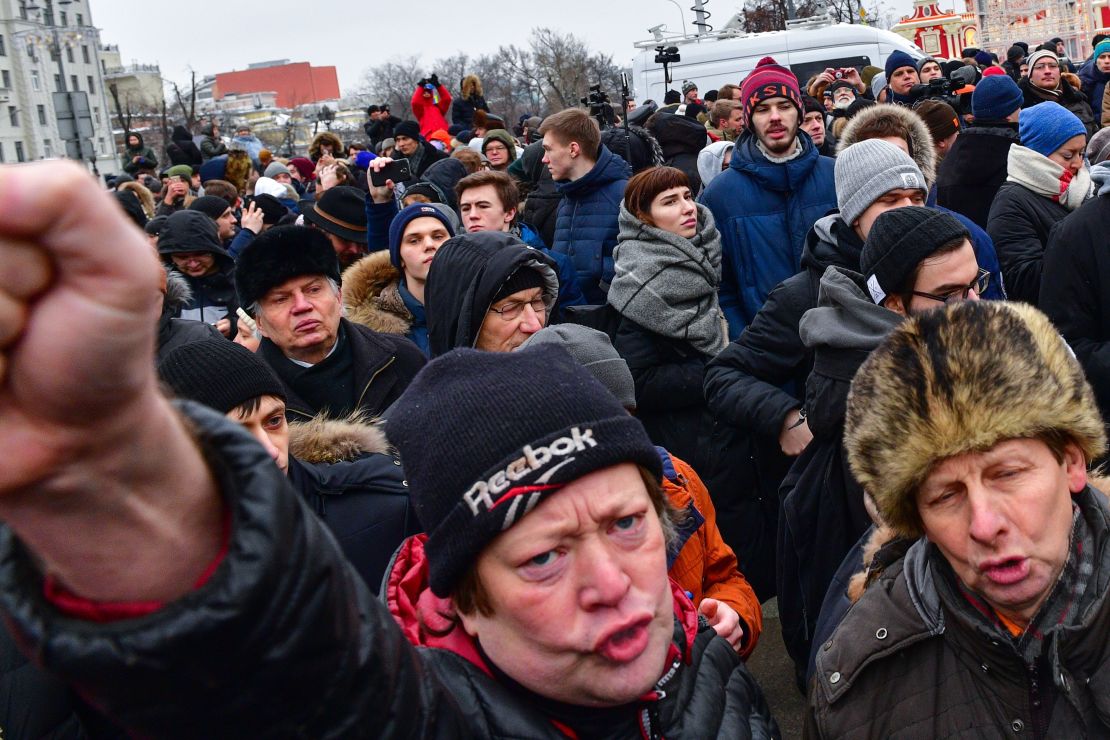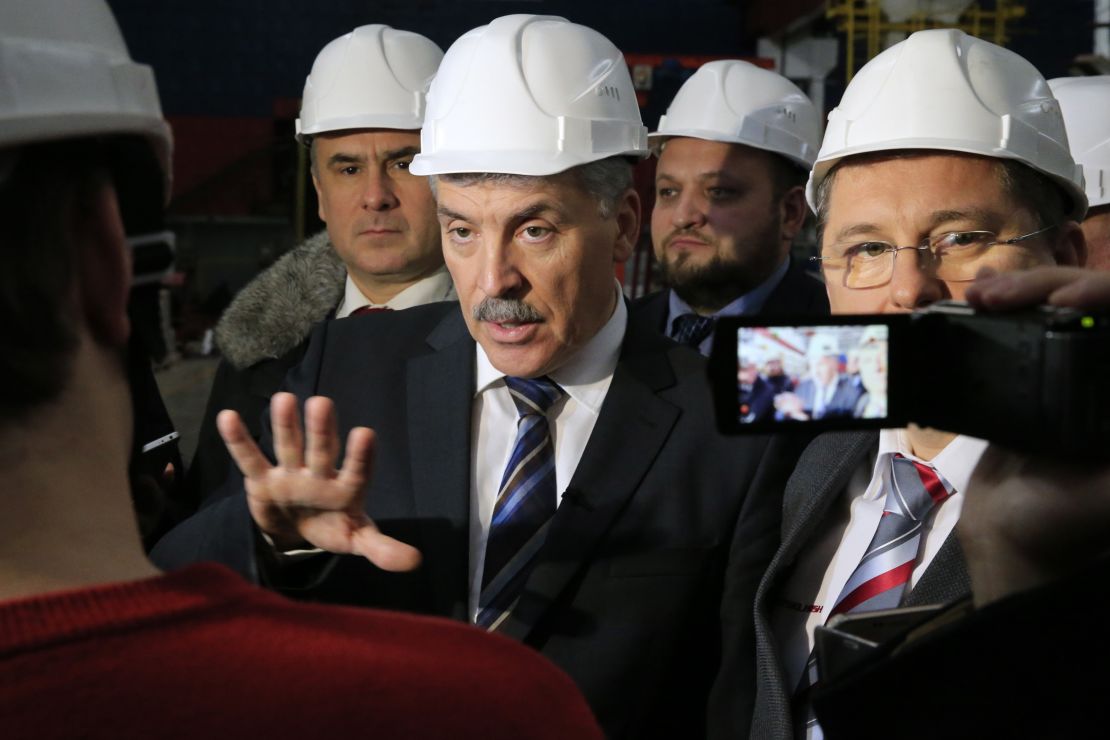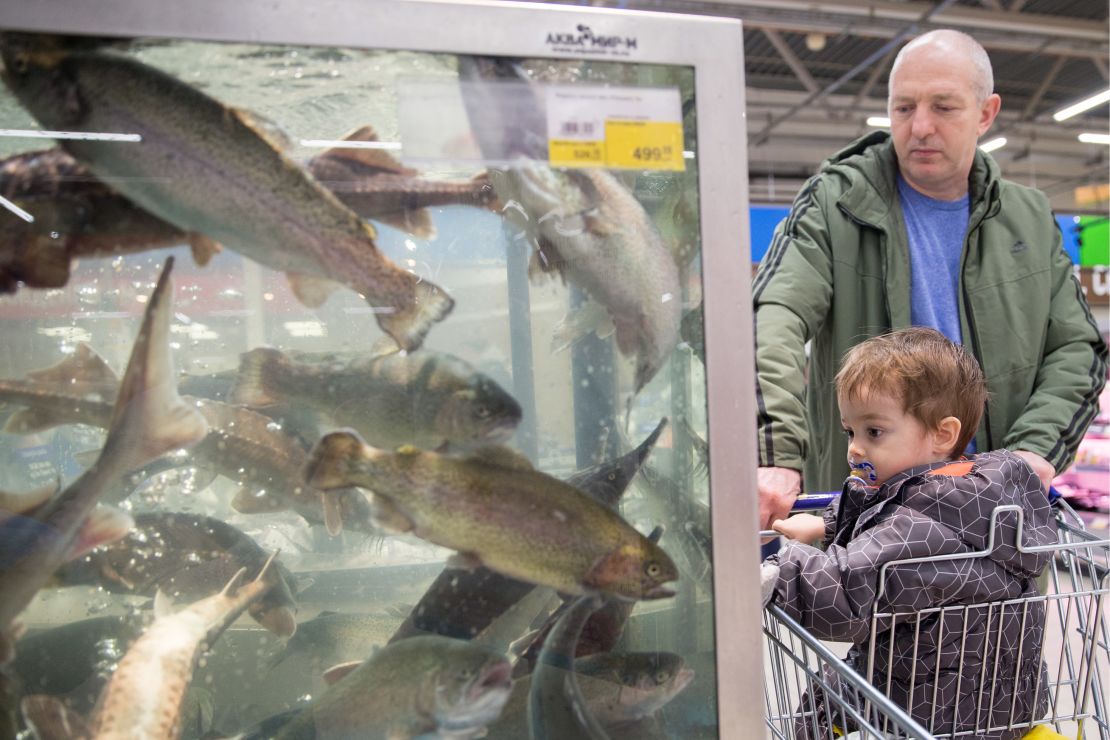Russian President Vladimir Putin will win the election – that’s a given. He maintains the overwhelming support of the Russian people, while the state has kicked his main opponent out of the race and sanctioned other candidates in the running.
The outcome is so deeply etched in stone, even Putin himself seems bored. His campaign has been woefully lackluster.
But on March 18, there will be one thing for the President to worry about: Turnout. It could be embarrassingly low, some polls suggest, and could raise questions about the legitimacy of Putin’s long-running authority.
Does turnout matter?
Putin is seeking a second consecutive term as president – a fourth altogether – to cement his power.
Without real opposition, the 65-year-old veteran leader has provided little vision for the next six years and is expected to skip televised election debates, which he has snubbed many times in previous votes.

But those decisions may have ramifications this time around. The problem with an election that doesn’t look like one is that it’s very difficult to get voters excited about it. With not even a chance of a surprise result, Putin is now battling voter apathy.
Putin’s main political opponent, Alexei Navalny – who has been banned from contesting the election – has campaigned for a boycott. Legions of young Russians tend to listen to him.
The Kremlin wants the golden 70-70 — a win of 70% of the vote with a turnout of 70% – to give it a clear mandate and provide it with a riposte to Western leaders who criticize Russia as an autocracy.
But 70-70 is unlikely. In a poll by the independent Levada Center in November last year, only 24% of respondents said they would definitely vote. Another 34% said they were “likely” to but hadn’t decided.
The government dubbed the Levada Center a “foreign agent” in 2016, effectively barring it from polling the vote. State-run polling bodies, like the Russian Public Opinion Center, claim there will be a much higher turnout, above 70%.
Low turnout won’t kick Putin off his pedestal – Russia has no minimum turnout rules for the vote to be valid – but it could scuttle any plans he might have to stay in power beyond his maximum term.
Who is running against Putin?
Navalny is Putin’s most vocal opponent, but an embezzlement conviction has forced him out of the race. The activist – who rose to prominence for exposing Russian oligarchs’ corrupt practices – says his conviction was politically motivated and devised to keep him off the ballot.
Seven other candidates are challenging Putin in the vote. If no one gains more than 50%, a run-off vote will take place in April.
Two candidates in particular stand out:
Pavel Grudinin: The strawberry king

Pavel Grudinin, 57, is expected to come second in the race but with only around 7.6% of ballots, a poll by the Russian Public Opinion Research Center shows.
He is seen as a capitalist communist, who took an old state-run strawberry farm in 1995 and privatized it as a social enterprise. The Lenin Sovkhoz farming complex is a throwback to the Soviet era but with the cash flow of capitalist Russia.
The enterprise reportedly pays its workers significantly higher wages than other farms and provides them with modern apartments and health care, as well as parks and subsidies for their children. His farm has given him a model to point to when he talks of his vision for the country.
“When people ask me why I’m running, I say: I want everyone in Russia to live like this, like we do. And that’s possible,” Grudinin said at a political event in January, according to the Financial Times.
He is vocally critical of the Russian elite and its corrupt practices, but his critics say that he too has been sanctioned by the Kremlin.
Grudinin was elected to Moscow’s regional Duma in 1997, and he joined Putin’s United Russia party in 2001, when it was established. He lost his seat a decade later and is now backed by the Communist Party.
On Monday, state news agency Tass reported that an election official accused Grudinin of having $1 million in Swiss bank accounts, even though he had notified the Central Election Commission that all his foreign accounts had been closed. Grudinin denied the allegations in a Facebook post, suggesting they were aimed at smearing him ahead of the vote.
Ksenia Sobchak: The reality-TV star
Ksenia Sobchak is not your typical Russian politician. The 36-year-old is a former talk show host and reality TV star, and while she has been dubbed “Russia’s Paris Hilton,” she has shown that she has more to offer than a typical socialite.
But she has struggled to convince Russians she isn’t one of Putin’s puppets. That her father, a former St. Petersburg mayor, was Putin’s mentor doesn’t help her case. She was born into the world of the political elite and her critics say she is being used to give the vote an air of legitimacy.
Nonetheless, she is one of the few candidates openly criticizing the system.
“In Russia, unfortunately, we have a joke that you cannot choose your parents, you cannot choose your gender and you cannot choose your president,” she told CNN’s Fareed Zakaria in an interview.
She has said, however, that she wants to influence the Kremlin from the inside and to at least change the conversation. She is pushing a liberal, Western-friendly agenda.
She advocates for LGBTI rights and says Crimea belongs to Ukraine. She recently toured think tanks in Washington and even apologized in a CNN interview for Russia’s meddling in the US election.
What are the key issues?
Putin has become synonymous with the system, and polls regularly show him with incredibly high rates of popularity, even at times when satisfaction with the government is below 50%.
For many Russians, the economy is a key issue. The country endured three years of declining real wages as inflation rose rapidly from 2014, forcing Russians to save aggressively when wages were pitifully low to begin with.
In the nick of time for Putin, the economy began emerging from recession last year and inflation has come under control.

And last month, Russian lawmakers finally passed legislation to raise the minimum wage from May 1, some nine months ahead of schedule.
It’s a meager increase of 2,000 rubles ($35) a month, bringing the minimum monthly wage to a “subsistent” 11,163 rubles ($197).
The Kremlin is touting the law as a big political win, but as St. Petersburg-based analyst Irina Meyer-Olimpieva puts it, it’s an increase on “an embarrassingly low minimum wage by a ridiculously low margin to reach a depressingly low subsistence level.”
What does this mean for the West?
Putin’s willingness to jump into feuds with Western powers, especially the US, has characterized much of his current term, and while it’s made him something of a villain in the West, it has made him a hero at home.
Russia’s annexation of Crimea from Ukraine triggered crippling international sanctions on the country and has been at the center of Russia-Europe tensions. Yet the Kremlin used a murky interpretation of the law to delay the election date to March 18 – the same date Russia took Crimea four years ago.
It is a celebrated page in Putin’s history: His popularity soared from 69% to 80% after the annexation, Levada polls show, and it has remained high, even through more than two years of recession that followed.
It seems Putin is banking on the date to boost participation numbers – an eyebrow-raising measure for an ironclad leader in a one-horse race.










